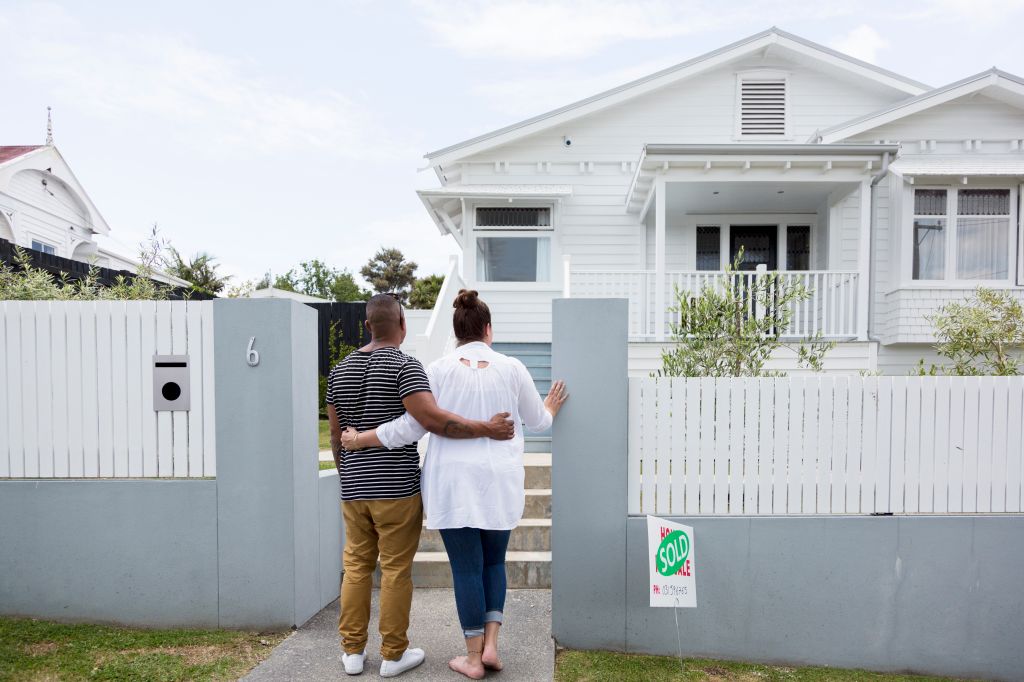
Source: Jessie Casson / Getty
If you’re even thinking about buying a home now may be the time…to keep saving. According to experts, the real estate bubble will likely burst shortly, creating new opportunities for prospective buyers.”From the cyclical low point in home prices six years ago, a typical home price has increased by 48% while the average wage rate has grown by only 14%,” says Lawrence Yun, chief economist for the National Association of Realtors. But don’t expect a repeat of the early 2000’s. That buyers’ boom was fueled by low-down payments and adjustable rate mortgages—meaning people could get into a house for literally nothing, then had ballooned payments later. This time around there’s much less supply for the high demand to get into the housing market.
So what’s the issue? It’s simple. Buyers may be able to get into a house, but staying is another story. Homeowners who use more than 30% of their income for mortgage payments are financially vulnerable. Any issue, whether it’s macro, like an economic downturn that leads to unemployment, or micro, will impact owners’ ability to pay. And let’s not forget that elephant in the room: the buyer’s market will dry up as prices continue to creep further past income growth. Either way, a change is coming. Here’s how you stay ready.
If You’re a Home Owner
- Shore up your emergency fund. Drop your bonuses into your savings account. Forgo travel or spending sprees until you’re at the six-nine month goal to ensure you have a cushion.
- Also, consider ways your property can generate income. Will investing a few grand into your basement or garage make it a rental unit? Are you open to using any part of your space as a vacation rental? Think of the ways your property can make money for you. Stack now so you don’t have to scramble later.
If You Want to Buy a Home
- Look aggressively for deals. As the market continues to creep up resist the urge to buy a house you can barely afford just to be in the market. If you must make a purchase, consider an income rental that you can afford instead of your dream pad—it offers the write-off and won’t leave you financially vulnerable.
- Consider partnering up with folks to buy. If you’re ready to buy, but the market is still too pricey, consider a purchasing partner, like your parents or friends who want to invest in the market. This strategy is particularly advantageous in communities with multi-unit homes.
- Save and wait. In most cases, your property is a long-term investment. If your money isn’t right—income or home prices—don’t let the pressure to be an owner rob you of strategy. You spend a lot of money on closing costs and down payments, plus you pay a significant portion of interest up front on most mortgages. All of this means a quick buy and sell—unless you’re in a great market—will result in you losing money. If the numbers don’t work for you, saving until the perfect opportunity will.
















